#life as a girl
Text






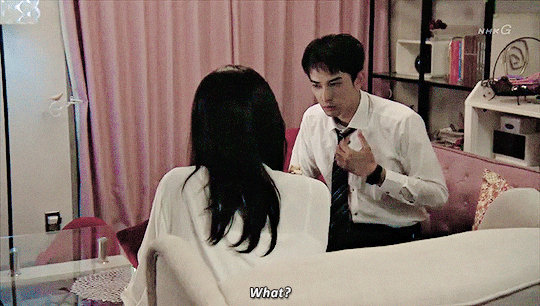
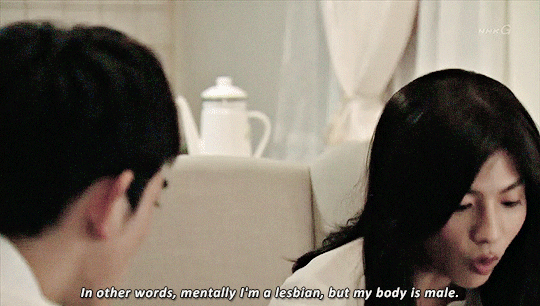


In other words, mentally I'm a lesbian, but my body is male.
JOSHI TEKI SEIKATSU (2018) | 1.01
#shison jun#machida keita#joshi teki seikatsu#life as a girl#女子的生活#joshi-teki seikatsu#jdramasource#jdramaedit#*#clairedgifs#jdrama#asiandramasource#mine#userstorge#lgbtq characters#lgbtqia#lgbtq#goto my lovely himbo#miki was so funny explaining it all to goto#she's shaking her head internally i feel it through my screen
207 notes
·
View notes
Text
Japanese QL Corner
ICYMI: There are so many Japanese qls airing weekly, so I’m going to start posting this little round up at the end of each week. Most of these shows are on Gaga and I highly recommend watching!
Tsukuritai Onna to Tabetai Onna 2

Another great batch of episodes this week, as Kasuga and Nomoto settled into dating life, all the gals got together for various food related events, and Nagumo began seeking treatment for her eating disorder. This show is just always so compassionate with its characters, and manages to find interesting conflicts without going for high drama. I am very much enjoying seeing Kasuga and Nomoto figure out how their relationship should look now that they're dating and also how to communicate and respect each other as they make decisions. Kasuga's tendency to let Nomoto steamroll her feels harmless when it's about picking fruit or vegetables, but it won't be when it comes to making decisions about where they live and how to set up their home, so it's great they're addressing it early. It's also awesome to see them expand their circle of friends and deepen their bonds with Yako and Nagumo--I was high key jealous of the curry and s'mores parties. And Nagumo just has my whole heart. When she expressed profound relief at learning there is a name for her illness and ways to treat it, my mind immediately jumped to Rachel Bloom. Looking forward to her healing. I can't believe there is only one more batch of episodes coming, love and gratitude to @furritsubs!
Chaser Game W
I’ll keep this brief. This show was a mess, and not even in a fun way because unfortunately it was also extremely misogynistic. @twig-tea covered the major issues well in her post. Wild that this show aired simultaneously with TsukuTabe, what a dichotomy.
My Strawberry Film
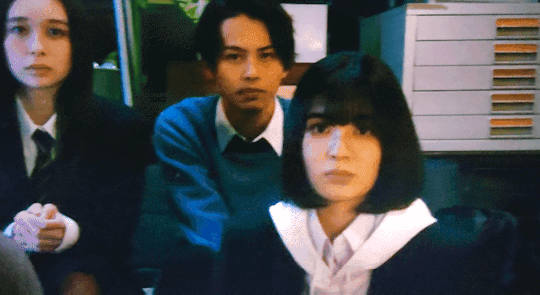
This one is really not grabbing me. It feels kind of slow and muted and uncertain about what it's doing. I am not finding the mystery or the love rhombus compelling, and this week's focus on Hikaru's infatuation with Minami had me yawning and picking up my phone a lot. But it's early, I am hopeful it will pick up some steam.
Sukiyanen Kedo Do Yaro ka

This was a cute episode about Sakae and Soga getting past their initial awkwardness, learning how to communicate with each other, and moving into a more intimate phase of their relationship, and I think I would have loved it if we'd gotten it two weeks ago. This should have been the episode that followed their initial confessions, but instead the show did a two week diversion into love triangle nonsense, and unfortunately, I think it really threw off the pacing and the connection to these characters for me. It just feels too late in the show for this relationship to still feel so new. We haven't had time to settle in with them as a couple, or for them to develop a strong foundation to make us root for them to overcome the coming obstacles in the final arc. Still, this episode had some delightful scenes--Soga finally paying a visit to the sauna was my personal fav, and I also enjoyed the metaphor of Sakae literally catching Soga's love (and knowing @bengiyo would lose it over another important SPORTS moment in bl). This is a show I really want to love, but something just isn't connecting.
Perfect Propose

I love this final episode and I love this show. Hiro quit his job, Kai resolved things with the shop owner and his son, and they finally got on the same page about their relationship and made out about it. 10/10 no notes for this finale. It was lovely to see Hiro finish his project and make a decision to quit the daily grind--I loved, too, that he is still in touch with his former colleagues--and we saw the change in him so quickly. He looked happier, lighter, brighter. His skin was cleared and his crops were watered! And Kai got to have his moment of catharsis too, sharing his fear that he is a burden on others and having Hiro affirm for him that he wants him in his life and he's a help, not a burden. And I loved that we got all that plus a great kiss, a bed scene (with a very cute leg cramp diversion) and a small peek at their new domestic life together. This show makes me happy and it will definitely be one I return to for rewatches.
Ossan's Love Returns
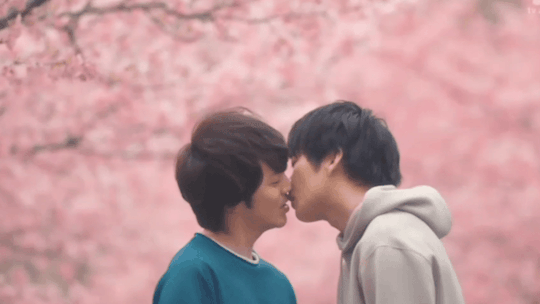
I'm of two minds on this finale. On the one hand, I really loved it as a single episode of the show, was happy with where all the resolutions landed, and was left with a very warm feeling toward the show overall. The cherry blossom scene especially really got me right in the feels; I've loved the progression of Maki and Haruta's relationship this season and I love the way they talk to each other. They have earned themselves a spot on my list of favorite drama couples who I actually believe are going to stay together. I also loved everything about the big chaotic group scene and all these characters coming together to pour love on Haruta; it felt earned after a season of him knocking himself out for all his loved ones. The end joke with Chief moving in next door, and getting a final Maki/Kurosawa battle, was *chef's kiss*. And Takegawa's perfect life partner being a cat? 10/10 no notes. I will be clutching my aroace Takegawa read tightly to my bosom.
On the other hand, the episode reinforced for me that the way we got to a lot of these resolutions didn't feel quite right. In particular, I don't think the way Kurosawa's health scare played out across the back half of the season worked, and I'm not too pleased about spending three episodes in a downbeat, tragic mode for the sake of a simple pun joke. I think the whole plot would have landed a lot better for me if the audience was let in on Kurosawa's mistake at the start and the tone of his overwrought goodbyes was farcical all the way through. Not only would that have maintained the comedic tone of the show, but we could have used that story time to better seed some of the themes of this episode with Haruta's crisis of confidence and yearning for family. I'm pretty much agnostic on Kiku and Izumi; they never sold me on that pairing but I wasn't mad about their ending.
Overall, I am very glad I jumped into this show and enjoyed the watch experience a lot, despite my quibbles with some of the overarching writing choices. The cast is amazing and all the characters make me smile. If they make another season, I'll be watching!
Bonus: Josi teki Saikatsu
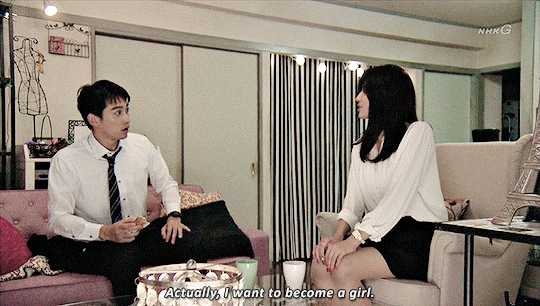
I finally watched this drama this week--I held out for awhile hoping to find it in better quality, but no dice, it's 480p in the grey--and despite the potato lens I loved it so much. This is the story of Miki, a transfemme lesbian, just trying to live her life in the way she wants, and all the barriers she comes up against in that pursuit. Our story begins when her childhood friend, Goto, comes looking for his old pal in a moment of desperation and is stunned to see how she's changed. The show is only four short episodes, but they manage to paint a full picture of Miki's life at home, at work, with friends and lovers, and with her estranged family, and show us how she became who she is. Miki is whip smart and perceptive and generous, but also wary of trusting anyone after she's been let down by so many loved ones. I love her so much, and you will too. This story was written by a trans woman and it shows! Brave the 480p and check it out.
#japanese ql corner#tsukuritai onna to tabetai onna#she loves to cook and she loves to eat#chaser game w#my strawberry film#sukiyanen kedo do yaro ka#perfect propose#ossan's love returns#josi teki saikatsu#life as a girl#japanese bl#japanese gl#jdrama
82 notes
·
View notes
Note
what are some of your favorite hand moments in dramas? i was watching kiseki: dear to me today and just couldn’t get over the scene where ze rui rubs the spot between zong yi’s eyebrows in episode 2
I have been asked this a number of times, so here are some links to past answers:
Hands 1
Hands 2
Recently though?
Unknown, Ep 4: Red thread boxing wrap scene
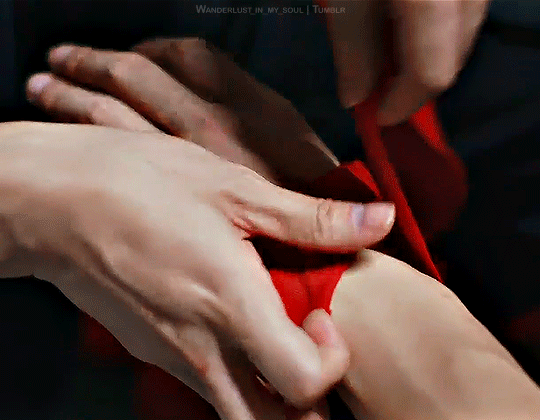
gif by @wanderlust-in-my-soul
Unknown, Ep 7: Qian not letting go of Yuan


gif from @wanderlust-in-my-soul
Cherry Magic, Karan asking for a goodnight kiss by holding Achi's hand
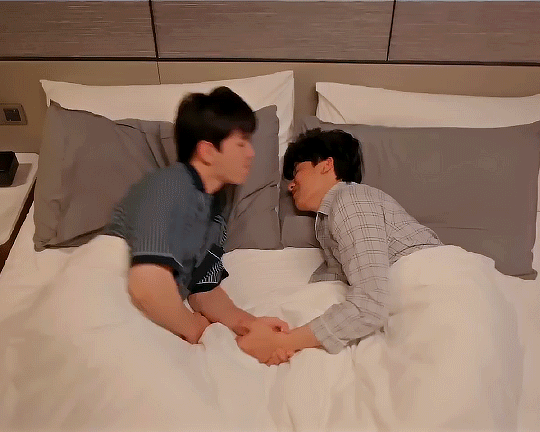
gif from @aprilblossomgirl
Cherry Magic, Achi and Karan playing a game at the bar with Jinta. They were just so fucking cute.
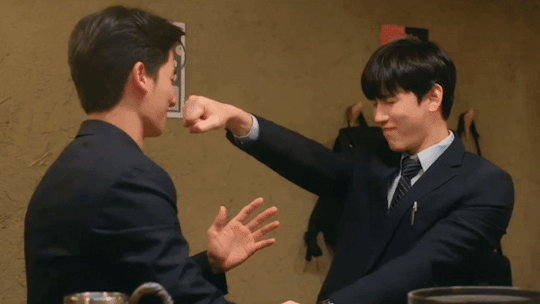
Love is Better the Second Time Around, Ep 4
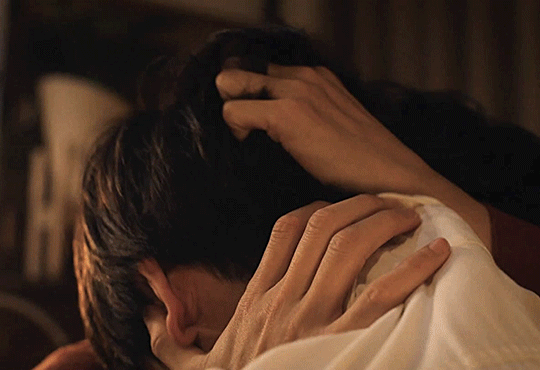
gif by @my-rose-tinted-glasses
Joshi teki Seikatsu, Ep 1
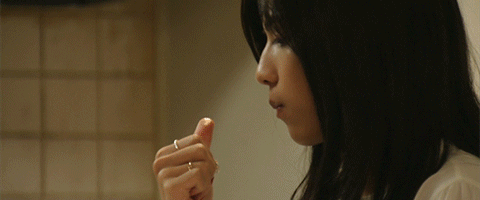
gif by @save-the-data
Love this moment in Joshi teki Seikatsu where Miki wipes cream from her mouth the way she did in high school as a way to demonstrate some inherent mannerisms that Miki has always had, even before her transition.
#love is better the second time around#koi wo suru nara nidome ga joto#cherry magic th#joshi teki seikatsu#life as a girl
33 notes
·
View notes
Text
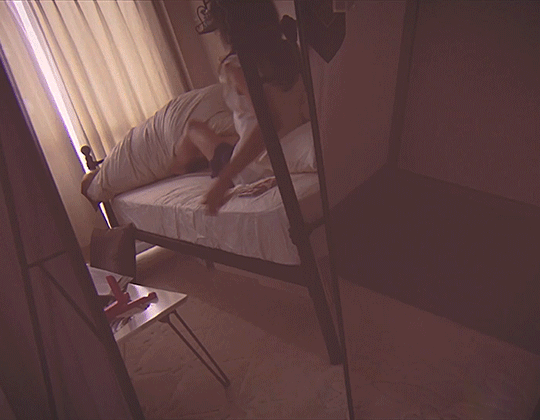
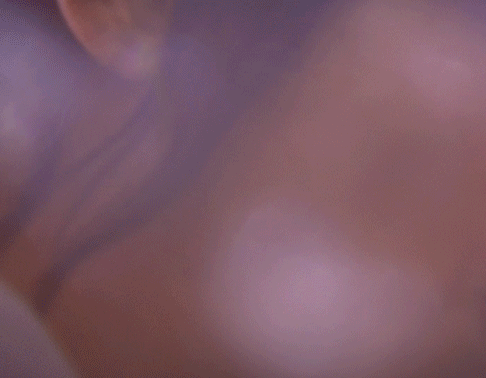

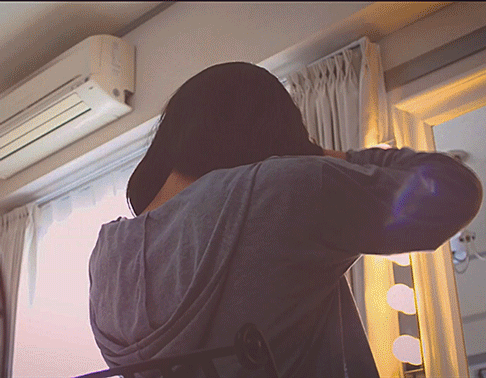
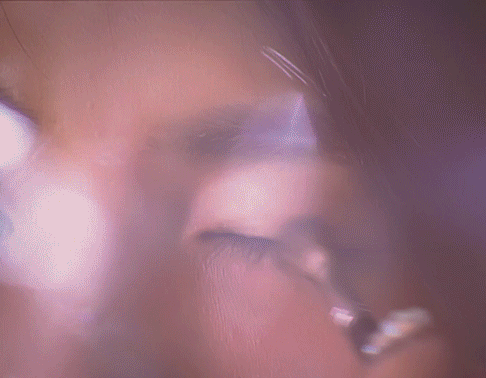
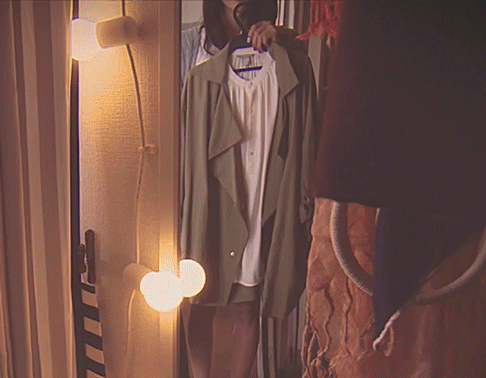
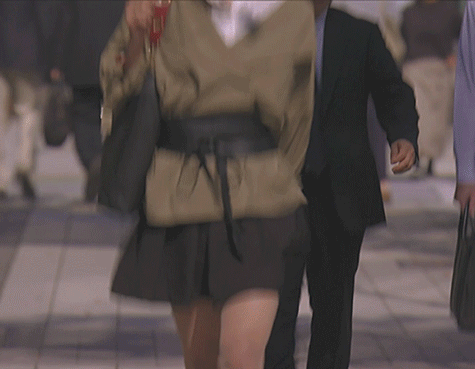
Joshi-teki Seikatsu [2018]
11 notes
·
View notes
Text
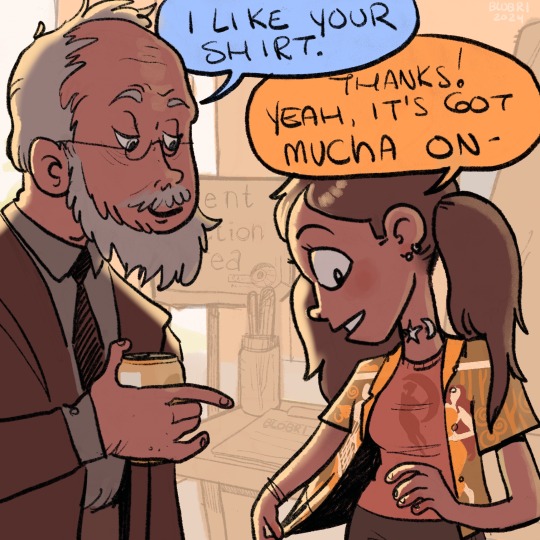
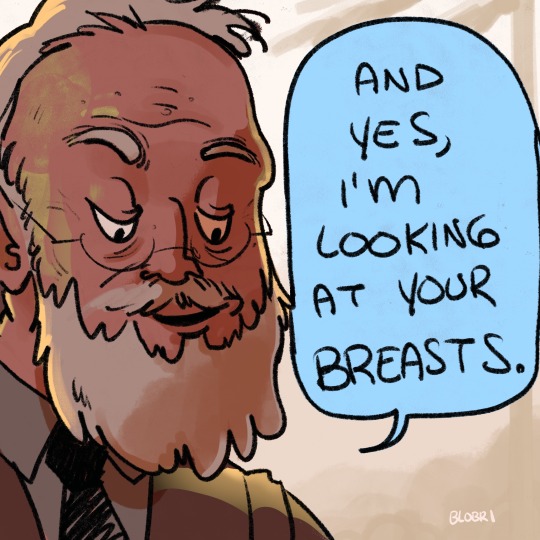


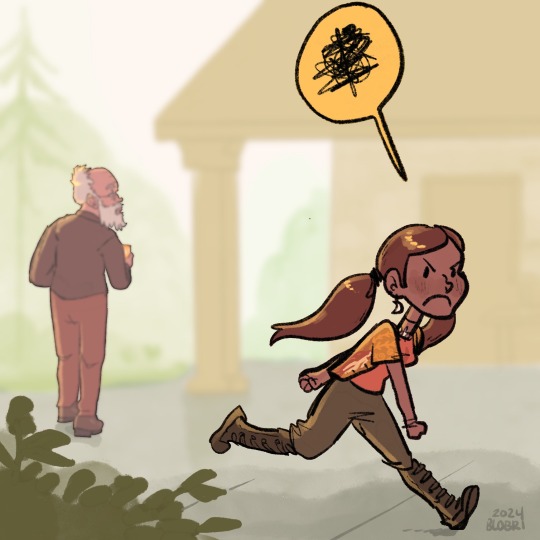
This is going to sound silly, but I'm getting tired of old men.
#art#illustration#cartoon#drawing#awbwisart#digital art#comic#metoo#old men#old man#true story#life as a woman#life as a girl#woman life#harrassment#feminism#female rage
7 notes
·
View notes
Text
Όλο αναλώνομαι και έχω βαρεθεί.
#γρεεκ κουοουτ#αγάπη#ερωτας#inspiring quotes#love quotes#poetry#dipression quotes#poem#motivation#lost interest#life as a girl#im just a girl#frozen#feelings#no feelings#nothing makes sense anymore#i miss him#i want him#sadgirl#ελληνικο tumblr#greek tumblr#tumblog#tumblr girls#spilled thoughts#random toughts#greek posts#greek quotes#γρεεκ ταμπλρ#γρεεκ τυμβλρ#γαμησε τα
10 notes
·
View notes
Text
I don’t think there was ever a day I didn’t spend feeling guilty for the crime of simply living
#spoken word#writers#writers and poets#writing#original poem#poem#poetry#spoken poetry#love#quotes#guilt#i feel so guilty#guilty#life as a woman#life as a girl#girls supporting girls#crime of living#crime of being small
7 notes
·
View notes
Text
(TW/CW: violence against trans individuals)
TL;DR: The 2018 NHK dorama Life as a Girl totally moved me. I did not expect to be so moved and thrown by this short series about a transgender woman in Kobe. If you’re into rabbitholes involving either Shison Jun or Machida Keita, this is a MUST WATCH. LONG POST!
I wrote last week that in my Machida Keita rabbithole, I discovered through the Tumblr algorithm a 2018 drama that he co-starred in called Life as a Girl, playing the bumbling roommate of a transgender woman named Ogawa Miki (played by an unbelievable Shison Jun).
Like I wrote previously, I’m deeply impressed that NHK produced this show -- NHK has these edgy tendencies that they don’t let run REALLY deep, like TV Tokyo does with its late-night programming. But I think that NHK leverages its huge influence over Japanese television by delicately introducing topics of mental and physical health and acceptance through short bursts of creative dorama content, and getting just unbelievable actors to carry the topics through (doramas that come to mind include To Heal Wounds of the Heart, with the AMAZING Emoto Tasuku as a psychiatrist who treats clients after the 1995 Kobe earthquake; and Hoshi to Lemon no Heya, which focuses on hikikomori culture, and stars Kaho and Miyazawa Hio, who both just ate their roles).
Life as a Girl establishes at the start that Miki has been living a confident life as a woman for a few years by the time we meet her. She is working in fashion, in a workplace that totally accepts her, and her immediate community -- her croquette vendors, the aquarium she visits after work -- all love and care for her.
But Goto (Machida), a high school classmate looking for Ogawa Mikio, Miki’s previous identity, bumbles into her life after falling into debt and needing a place to live. The risks are obviously high for Miki -- she has no way of knowing how Goto will take and understand her transition since the school days, and even after she welcomes him into her home, he takes a few minutes to realize that Mikio has become Miki, and IS Miki, through and through.
The show focuses on a few immediate themes, with more cropping up later on:
1) That while Miki is confident on the outside, she is insecure and shaky about her immediate existence and future as a lesbian, particularly as she as not had any surgery at the moment we meet her
2) That with Goto in her life as her roommate, that she will have to experience cishet male culture again, and she notes how this affects her and her behavior
3) That Goto’s presence means that people from her past life as a boy/man will learn about the transition and have their own reactions (which episode two focuses on)
4) That Goto’s presence also makes her realize and reflect on her family’s acceptance, or lack thereof, of her identity
5) That her attraction to women forces her to confront that no matter what, even as a woman herself, she will not find the assumed societal stability that a non-lesbian in Japan would find in marriage with a man
6) That if she gets into a relationship with a het woman, that that het woman may end up leaving her to go into marriage in the end, which (spoilers) ends up happening with a woman that Miki dates in the short series
7) And finally, while this is not OVERTLY stated, it is somewhat implied in episode three, when Miki is briefly attacked by her cishet older brother, that transgender individuals are more at risk for attacks and homicides than cishet individuals.
Before I go on with my analysis of the show, I want to say that my first introduction to a viewpoint into transgender identities in Japan was through the 1993 translation of Banana Yoshimoto’s novel, “Kitchen,” first written in 1988. I didn’t read it until I was much older, already a teenager, so that was the late 1990s/early 2000s (yes, I am old, so old), in which the mother of one of the lead characters was previously his father, and this mother is murdered in a transgender club.
The way in which transgender identities are treated in “Kitchen” are somewhat reminiscent of how I felt gay identities and culture were treated in the drama version of KinnPorsche by Kinn’s father, Korn, in that -- no huge deal was made about the decision that the co-lead character’s mother made to become a woman. The main character of the novel -- a young woman who has lost her entire family -- regards the mother as the most beautiful woman she had ever seen. And the culture in which the lead character is introduced to is treated quietly, with no reactions recorded at all, and acceptance being a given. It is simply accepted as a way of life in big cities in Japan, one way of life of millions being lived in the city everyday. And most importantly, the transgender individuals are only initially regarded as such -- and by the time their stories are fully told, they are family figures, and never outed again as “transgender” by the author.
While “Kitchen,” I think, began to establish a line of acceptance for transgender identities and culture in Japanese art (and I am obviously missing plenty of works that certainly cropped up between 1988 and 2018), Life as a Girl allows us to dive specifically into the focus of a transgender woman ACTIVELY living the life that she has chosen, with her small chosen family around her. Miki keeps a blog, and her internal communication to herself is often peppered with pop-up hashtags of what she’s witnessing and summarizing about the world around her. We see the hashtags, many times in rapid-fire fashion, as she analyzes what’s happening around her and as she reads the people around her.
And she’s a master at reading people. When Goto literally bumbles into her life in episode one, Miki knows that it’s just a matter of time before Goto catches on that Miki was Mikio -- and he catches on, and is startled. But Miki’s coolness, her acceptance of Goto’s confusion, her watching him through his process -- she already knows almost all of what Goto will go through to realize that his schoolmate is no longer a man.
What catches and turns Miki, though, about Goto throughout the series, is that Goto only exists on a sincere level (he’s bumbling and foolish and kind of dopey, and VERY cishet -- but he’s deeply caring, and shows it). Slowly over the course of the four episodes, Goto sees the discrimination that Miki faces, and begins to develop a defense of how Miki lives her life -- which we see coming in full circle in the last episode of the series, when Miki is heavily discriminated against by a rich cishet male, and Goto stands up to him loudly and firmly. Miki runs away at that moment -- her coolness can’t tolerate the sheer sincerity of Goto’s loud defense and emotion in defending his friend and her decisions.
We also see it in episode three, where by chance, Miki is sent to her hometown for a work assignment. While waiting for the train back to Kobe, Goto appears on the platform. Miki is in wonder -- why would Goto, of all people, be here? And Goto implicitly indicates -- it’s because he needed to be here for his friend, who may encounter unpleasantries while in her hometown. (More on this scenario in a moment.)
The way in which we learn a lot about Miki and her ability to survive the world around her is through the ways in which she attends goukon, or group blind dates, of which there are a number throughout the series. Not everyone at the goukons knows that Miki is transgender. But, Miki sets her sights and targets on the women in the group, automatically turning the tables on the socially implied nature of the setting that girls get with guys and vice versa. It’s at a goukon where Miki meets her girlfriend of the series, a young woman with a boyfriend in her country hometown, who is assumed to be with Miki in part because Miki has not transitioned surgically yet.
At these goukons, Miki is fully engaged in her coolness about the people around her -- how they’ll behave, how simple cishet men are, how the women she’s attracted to will react when they are approached by Miki.
But what I love about this show is that the foil from the goukons to her co-living existence with Goto forces Miki to face a deeper level of emotion about herself and what it means to be transgender in Japan. Goto’s quiet transformation to a devoted and ACCEPTING friend surprises Miki, and clearly surprises her throughout the show. It’s such a lovely, revealing reflection against the many, many, many defense mechanisms Miki has had to put up in order to survive.
The other best example of Miki’s coolness colliding with sincerity from others was in episode two, when the bumbling Goto mistakenly invites another high school classmate (Mini-san) to visit Kobe and stay with them. Mini-san’s real intention to come to Kobe was not to relieve his depression, as he told Goto -- it was to find out if Miki, previously Mikio, was a monster (and the subs literally translate this concept as “monster”).
Miki knows what’s up. She already knows the discrimination that she’ll face from Mini-san. And she lets it go through its process, all while Goto is taken aback at Mini-san’s disgusting behavior. Finally, Miki makes her cutting diagnosis of the situation: she reveals that Mini-san is actually interested in cross-dressing, and aids him through his experimentations. This throws Goto -- and demonstrates to Goto that Miki’s warm heart is one that needs investing in.
Finally, the show deals with family acceptance. When Goto appeared on the train platform to accompany Miki home after her first visit to their hometown, I was deeply moved -- and that was before the appearance of Miki’s father and older brother, an older brother who was shown in flashbacks to have tormented the former Mikio as a young man for cross-dressing.
I have to make a long post longer by processing the family scenes, because I thought it was deeply interesting in how Goto served as a go-between for Miki and her father, to help bring her father to a place of acceptance for Miki’s life. The father is initially presented as being surprised to see his former son as a woman, obviously, and the conversation is light at best -- but it’s clear that Miki’s father is relieved to see Miki healthy.
And Goto, in talking about Miki and their arrangement as roommates (which confuses the hell out of a lot of people, and I wish Goto had just used the word “roommates,” lord, but bumbly Goto didn’t ever do that), misgendered Miki’s pronouns to her father to talk about Miki.
So as a progressive -- of course that made me wince. But as an Asian, with Asian parents -- I see why the writers had Goto do this. There is no way in living hell that my own parents could ever understand the culture around using correct pronouns. Their concept of reality is only focused on their understanding of their world around them. If a boy was born as a boy, that boy will always be a boy. My parents don’t have the cultural insight, leverage, or conceptual fortitude to understand anything else -- both in their refusal to understand different concepts, but also in the ways in which they’ve lived their simple lives over their lifetimes.
I believe the writers of the show had Goto click into that mindset. Goto was really Miki’s go-between at that moment -- a translator of sorts, from a cishet male to a cishet male, with Goto serving as the image of someone who had worked on gaining understanding and acceptance for who Miki was and how she lived her life.
That demonstration, in front of a family member who could have very well rejected Miki, was AMAZING to watch. And the appearance of Miki’s older brother, who bolted in with his discrimination in the process, judging Miki, attacking her, and railing on her appearance, was also a necessary foil to the moment. Goto stands up to the brother, and Miki also fights back, voraciously and vocally, stating with confidence -- I am a woman, I love fashion, and I have chosen the life I want to lead.
And Miki’s father accepts it. At the end of the scene, he stands and accepts his daughter, calling her Miki. It was VERY reminiscent of the incredible scenes of acceptance at the end of the movie “His,” with Miyazawa Hio and Fujiwara Kisetsu, when older members of their small town vocally demonstrate their acceptance of a gay couple in their town.
I think the show ended on a touch of a wiggly note, showing Miki continuing to live her life in kind of a more fun way than we had previously seen, and I think the show certainly could have gone down a more sickly-sweet sentimental route, considering this was on nationally broadcast Japanese television. But that’s a minor quibble. We need to see more transgender actors in roles, but I don’t think they could have cast this better. Shison Jun was absolutely SPECTACULAR as Miki, and he’s my new rabbithole; while Machida Keita ate his role as Goto, and for me, played the first cishet role I’ve been truly happy to see him in. He was cast and USED perfectly to set up how hilarious many cishet male behaviors are, and demonstrated a lot of what Miki left behind, culturally, when she became a woman.
WHEW. This show tore me apart. I’m keeping it close, and not only for the Machida rabbithole (which, lord help me, will jack back up when I get the Cherry Magic DVD in mere days). Life as a Girl is a MUST WATCH, and I am definitely going to rabbithole more into transgender-focused content from Japan in the coming months.
25 notes
·
View notes
Text
life as a girl truly proves once again that the best platonic dynamic is between a himbo and a lesbian
4 notes
·
View notes
Text





Hey, those girls are having a really good atmosphere. Not really. We're just really close.
JOSHI TEKI SEIKATSU (2018) | 1.01
#koshiba fuka#shison jun#joshi teki seikatsu#life as a girl#女子的生活#joshi-teki seikatsu#jdramasource#jdramaedit#*#clairedgifs#jdrama#asiandramasource#mine#userstorge#lgbtq characters#lgbtqia#lgbtq#wlw#they went from moments of bickering right before this to putting on this lil show to escape from the blind date#I LOVE THEM
170 notes
·
View notes
Text
Posting this iconic piece of media that I just NEVER found online isolated except in an archived reddit thread
138K notes
·
View notes
Text

Crocodile finds a strange stray cat an 11-year old Nico Robin
(AU where they met 13 years earlier. Robin's been on the run from the World Government for 3 years. Crocodile's 27 and has not set up base in Alabasta yet)
It seems like I have become possessed. By some sort of demon.
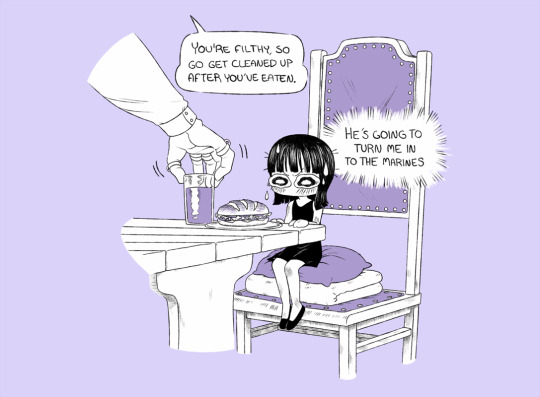

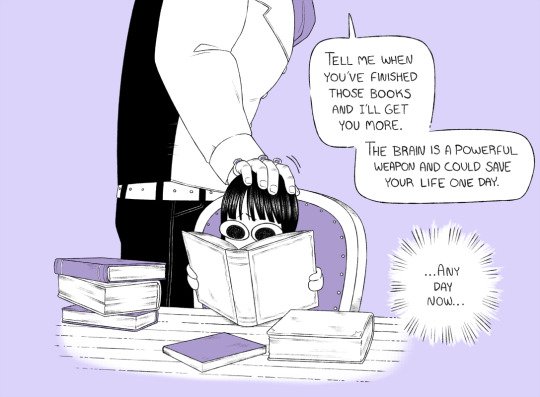
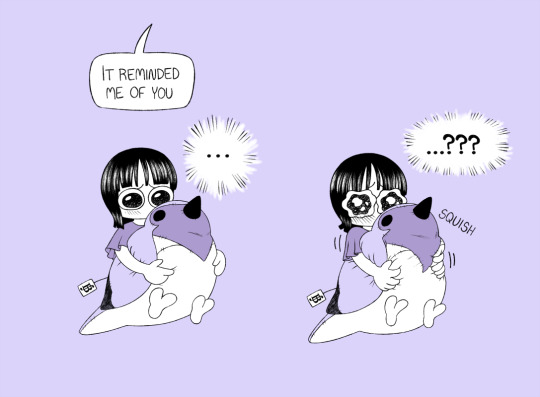
Bonus:
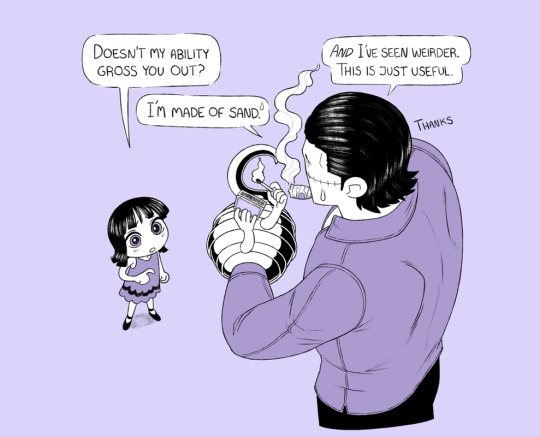
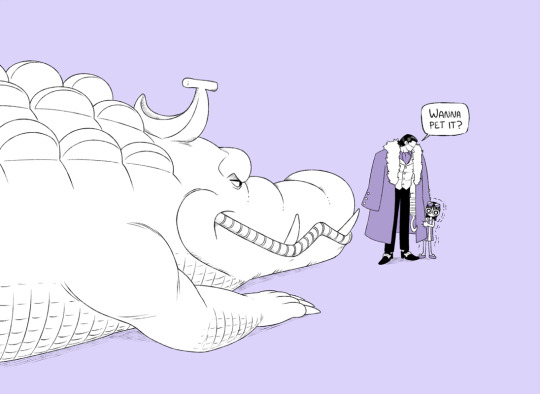
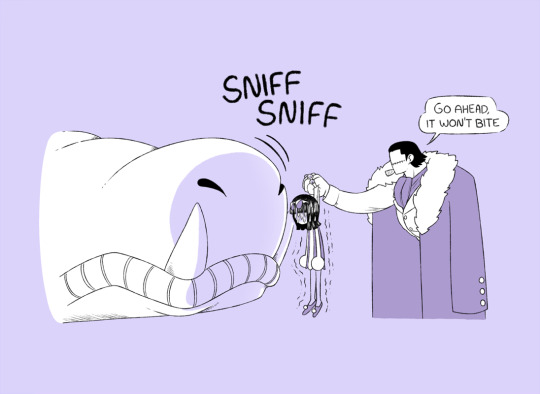
#My art#One Piece#Nico Robin#Sir Crocodile#Y'all the OP brainrot is BAD#According to an SBS Crocodile would absolutely spoil his child rotten if he had one. *We all know how Robin's childhood went*#Scary mofo who does not know how to parent a child but boy does he have the spirit + Child who has never had proper parent in her life#They'd make. An absolute disaster of a duo. This AU concept is so fucking funny to me okay#But also sad because I would fucking die for baby Robin she deserves the fucking world#This poor girl has never been spoiled in her entire life AND NOW PAPADILE IS HERE TO SPOIL HER#You know it's funny. I know 11 yo Robin should LOOK older than 8 year old Robin. But Crocodile is a fucking giant so she's still baby sized#Also I just had too much fun drawing Robin looking as pathetic as humanly possible lmao#She's a like a wet kitten in the rain 😭
22K notes
·
View notes
Text
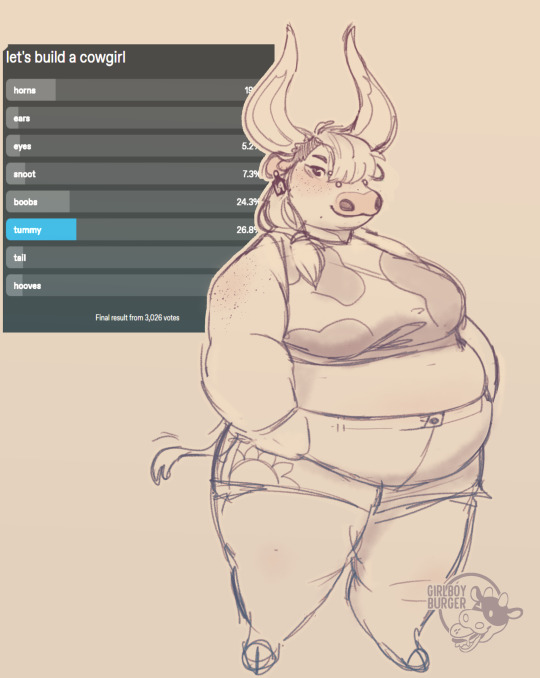
alright tumblr, here's your homegrown cowgirl C:{
what do you think of her?
#this was fun! took me awhile since life is nuts rn trying to move but#id like to do smthg like this again somwtime#my art#furry#fursona#anthro#furry fandom#cow#cow girl#fat#< - not enough art in the fat tag. i will change this o7#tumblr polls#sketch#doodle#edit: bf pointed out the tummy could be bigger so i biggified her a little
13K notes
·
View notes
Text
Haii :} New blog aside from my other acc @hytpsk1ny 🙏🙏New vibe ?
#hell is a teenage girl#cybercore#frutiger aero#blog#new blog#girl#life as a girl#teenagers#gaslight gatekeep girlboss#Spotify
1 note
·
View note
Text

Now that the sun came out again in spring and was shining on the earth, Johannes liked to go to the city park. Actually, it was Johanna, who then sat there on a park bench or at the fountain and enjoyed the sun. She watched the women and girls who passed by, sat down on the meadow or licked their ice cream in the café. Johannes liked to dress like a woman and would also like to live full-time as a woman. But there were these little things that betrayed him again and again because of which people addressed him with „young man“. He still had to learn so much. And so he watched the women and girls, who by nature could do that. He watched their feminine ways, the way they walked, talked, sat down and stood up, licked ice cream and held the coffee cup.
#transgender#trans pride#sissy cd#cross dressing#crossdresser#crossdressing captions#girly#public#training#lesson#life as a girl
0 notes
Text
Me: Why is it so hard to keep weight off as an adult?
My Brain: OH JEEZE I DUNNO, maybe because we don't have 3 recesses a day that equal to appoxly 1hr 30mins a day?
Me: D: okay no need to shout. ;w;
0 notes